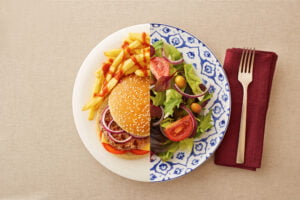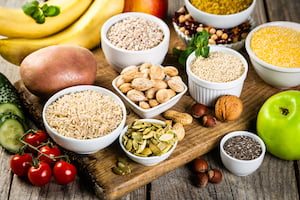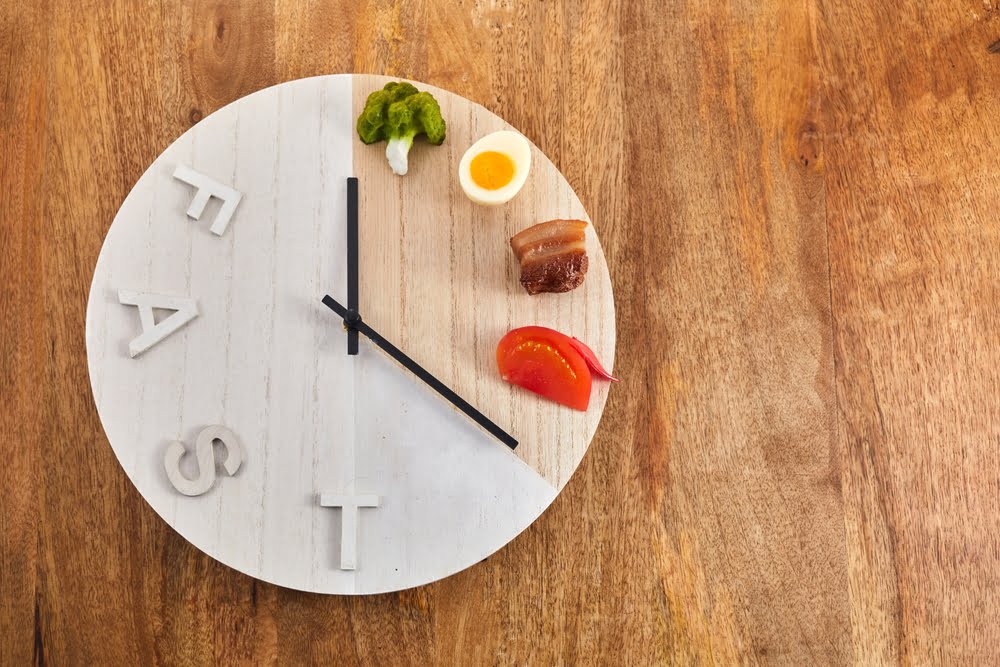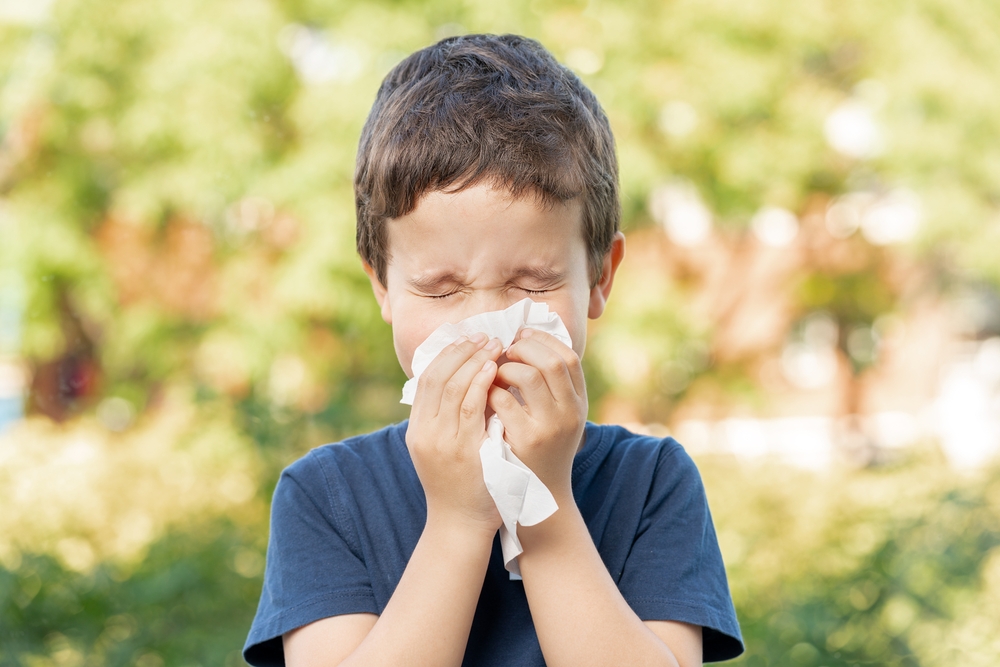Tired of trying the latest fad diet or cleanse without seeing any results? Ditch the restrictive diets are check out this list of the best eating habits for weight loss that focuses on achievable goals and long-term results:
1. Cut back on “junk food”.
 One of the biggest pitfalls many people face when it comes to losing weight is adopting restrictive diets that aren’t sustainable. Instead of cutting out all soda, candy, and other fast food all at once, start small by drinking one less soda per day, getting fast food only once a week, and limiting other sweet treats to every once in a while. Over time, you may notice that you don’t crave those foods anymore, because you can still enjoy them in moderation. One of the best eating habits for weight loss is to follow the 80/20 rule– eating healthy for 80 percent of the time, while still enjoying your favorite foods that are less healthy the other 20 percent.
One of the biggest pitfalls many people face when it comes to losing weight is adopting restrictive diets that aren’t sustainable. Instead of cutting out all soda, candy, and other fast food all at once, start small by drinking one less soda per day, getting fast food only once a week, and limiting other sweet treats to every once in a while. Over time, you may notice that you don’t crave those foods anymore, because you can still enjoy them in moderation. One of the best eating habits for weight loss is to follow the 80/20 rule– eating healthy for 80 percent of the time, while still enjoying your favorite foods that are less healthy the other 20 percent.
2. Experiment with new flavors.
Give yourself a goal to add a new fruit or vegetable to your plate each week. Try mixing different herbs and spices and cooking methods like grilling or roasting. Expanding your cooking knowledge and taste buds may just help you find your new favorite meal or recipe!
3. Prioritize protein and fiber.
When coming up with meals and arranging your plate, always make sure you have plenty of protein and fiber, as well as healthy fats. These “building blocks” of your diet will help you stay full longer and provide stable energy levels throughout the day.
4. Eat fish at least once a week.
Speaking of protein, fish, especially fatty fish like salmon and tuna, are excellent sources of Omega-3s and other nutrients. These are great lean protein sources that are healthier alternatives to red and processed meats.
5. Source carbohydrates from fruits and vegetables.
 Refined carbs found in most pre-packaged crackers, chips, and snacks are foods to avoid. These processed foods are high in carbohydrate content and lack significant quality. Carbohydrates are best when sourced from whole foods such as whole grains, fruits, and vegetables. You might not realize how many fruits and veggies are good sources of carbs, so here’s a list: sweet potatoes, squash, carrots, beets, zucchini, corn, bananas, apples, berries, grapes, and pears.
Refined carbs found in most pre-packaged crackers, chips, and snacks are foods to avoid. These processed foods are high in carbohydrate content and lack significant quality. Carbohydrates are best when sourced from whole foods such as whole grains, fruits, and vegetables. You might not realize how many fruits and veggies are good sources of carbs, so here’s a list: sweet potatoes, squash, carrots, beets, zucchini, corn, bananas, apples, berries, grapes, and pears.
6. Watch your portion sizes.
Another easy step you can take to begin a weight loss journey is to simply portion out the serving size listed on the food label. This is also part of reading food labels and understanding what nutrients are present (or not). When you’re more aware of portion sizes and the ingredients in your food, you’re more likely to choose healthier items when shopping at the grocery store.
7. Practice intermittent fasting.
Intermittent fasting is a technique that has helped many burn extra body fat. Instead of just focusing on what you eat, intermittent fasting also considers when you eat to be important. A typical fasting schedule could look like this– eating all of your meals and snacks within an 8-hour time frame, and then fasting for the remaining 16 hours.
Do you want some extra support and motivation for your weight loss journey? Come and talk with one of our nutrition and weight loss experts, and we can help you establish effective eating habits for weight loss, manageable exercise routines, and other healthy lifestyle modifications that will help you achieve your wellness goals.











